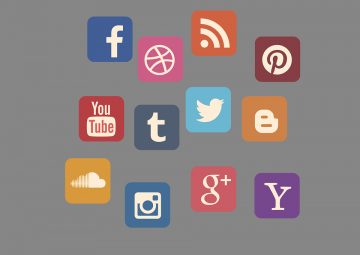 You’ve likely heard the old adage, “If you aren’t paying for the product, you are the product.” Although the quote’s originator is unknown, it has been around since before the Internet boom of the 1990s.
You’ve likely heard the old adage, “If you aren’t paying for the product, you are the product.” Although the quote’s originator is unknown, it has been around since before the Internet boom of the 1990s.
The phrase could have been said when cable television first began broadcasting over the airwaves. It could have been said during the first radio broadcast. Or when the printing press began rolling off free dailies. In any case, it isn’t a new concept.
But it seems particularly relevant today.
The potential is frightening
We’re openly sharing information and creating data at a rate never seen before. Most often, online services are not charging any fees. And so, once again, the old adage applies.
A new play called “Privacy,” has opened in New York city and stars Daniel Radcliffe. The audience is encouraged to keep their cellphones on during the performance, and are even asked to participate in the theatrics, which involves someone onstage researching information about audience members and displaying it on a large screen. The New Yorker, in their review of the play, writes that:
“We’re told—rather, shown—how intrusively specific our ‘metadata’ is, from targeted advertising to an iPhone feature called ‘Frequent Locations.’ (Settings -> Privacy -> Location Services -> System Services -> Frequent Locations. Whoa, right?)”
Two equally invasive applications have recently received funding that transform Internet users’ personal data into rated profiles. These applications compile information from sources as varied as social media profiles, browsing history, and GPS coordinates. The profiles are then sold to potential employers, landlords, banks, and even prospective dates.
This means that your online behaviour could be evaluated and taken into account the next time you apply for a job, view an apartment, ask for a loan, or even ask someone out for a drink.
How it might look
The profiles are a compilation of data that establishes the potential risk of an individual. Are you up all night on Instagram? You’ll likely be tired the next day and won’t make a good 9-5 employee. Do you often tweet about financial hardship? You’re probably not the ideal candidate for that car loan. Do you post a lot of dating pictures on Facebook? Maybe that special someone is a bit more selective.
Unsurprisingly, The Washington Post took a much more critical look at the potential of these startups than the coverage provided by American Banker, which chose to focus on their more positive applications and monetary benefits.
You can judge for yourself: Socure claims to provide “identity verification using online and social data,” and Score Assured is supposedly “unlocking big data to bring you insightful referencing.”
Shame over credit scores
In China, people can receive considerable discounts on otherwise very high-interest loans if they willingly give up personal information like social media profiles, browsing history, and GPS coordinates. The lenders use this information to establish credibility and a means of recourse should the borrower default.
Chinese university students are even said to be submitting nude photos as a form of collateral for high-interest loans. If the students are unable to keep up with payments on the loans, the photos are then sent to family members.
Big Tech investing in healthcare
Apple, Google, IBM, Facebook, and even Uber, are all investing in digital healthcare. For Google, this means analyzing and organizing search terms and results to lead a user towards a more accurate diagnosis of a medical issue. But in terms of personal information, this means that Google might know more about your health than your doctor.
With a surge in innovation around wearable technology capable of monitoring everything from heart rate to blood-sugar, private corporations are amassing huge amounts of information, far beyond what public researchers have ever had access to. The implication is that the field of healthcare could be revolutionized if this data were to be made publicly accessible to accredited researchers. But the reality is that this information could also be contained and exploited for profit.
What do you think?
How do you feel about your personal information being used to diagnose medical issues and being sold to the highest bidder, be it your future landlord, employer, or partner? Would it change the way you use the internet? How much of yourself already exists online that you might want to get rid of in light of these new applications? Let us know in the comments.

